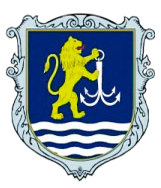PECULIARITIES OF DETERMINING THE DISCOUNTED PAYBACK PERIOD OF THE ECO-LOGISTIC SYSTEM PROJECT
Abstract
Introduction. Preserving the environment today is one of the most important, urgent and comprehensive issues on which the future of humanity and life on the planet as a whole depends. Logistics as an area of practical activity makes a negative contribution to the state of the environment. Recently, ecology has been used as a modern concept of logistics, which helps to prevent and eliminate the consequences of negative ecodestructive impact on the environment through the transformation of logistics systems. The purpose of the article is to study the impact of changes in the structure and duration of the environmental system project life cycle, due to the environmental orientation of this type of project, to assess the effectiveness of the project using the criterion of efficiency – discounted payback period. Results. The specific features of the ecological system project life cycle are investigated. An ecological system project life cycle model has been developed, which reflects the links between time intervals and cash inflows and outflows that correspond to the stages of the project life cycle phases. A mathematical formula for calculating the discounted payback period of the project is proposed, which takes into account the specific features of the formation of individual phases cash flows of the ecological system project life cycle. The application of the formula is possible under the condition of constancy of flows of stages of operational and regenerative phases, which corresponds to the conditions of uncertainty in forecasting cash flows at the beginning of the project. Conclusions. The ecological system has specific characteristics that distinguish it from the logistics system. In particular, the project life cycle of the ecological system includes ecologically-oriented phases, during which measures are taken to preserve and restore the ecosystem. The ecosystem project life cycle model includes five phases: pre-investment, investment, operational, regenerative and revitalization, which take place over six-time intervals. Each time interval corresponds to cash flows of certain phases. A life cycle model is presented that takes into account cash inflows and outflows over time intervals. The project efficiency is assessed using the discounted payback period, taking into account the specific features of cash flows during the life cycle of the environmental system.
Downloads
References
2. Ковтун Т.А. Визначення ролі екологізації в досягненні цілей сталого розвитку. Розвиток методів управління та господарювання на транспорті. 2020. № 2 (71). С. 63–81.
3. Екологоорієнтоване логістичне управління виробництвом : монографія / Є.В. Мішенін, І.І. Коблянська, Т.В. Устік, І.Є. Ярова ; за наук. ред. д. е. н., проф. Є.В. Мішеніна. Суми : ТОВ «Друкарський дім «Папірус», 2013. 248 с.
4. Towards a circular economy: the role of dutch logistics industries and governments / N. Van Buren et al. Sustainability. 2016. № 647. http://www.mdpi.com/2071-1050/8/7/647.
5. Руденко С.В., Ковтун Т.А. Екологізація логістики як напрямок реалізації концепції сталого розвитку. Проєктний та логістичний менеджмент: нові знання на базі двох методологій : монографія / авт. кол. С.В. Руденко, І.О. Лапкіна та ін. Том 3. Одеса : Куприєнко С.В., 2020. С. 7–24.
6. Международный стандарт ISO 14001:2004. Системы экологического менеджмента. Требования и руководство по применению. 2004. 30 с.
7. Букринская Э.М., Мясникова Л.А. Логистика взаимодействия участников системы обращения с отходами. Проблемы современной экономики. 2018. № 3 (67). С. 152–157.
8. Дзюбіна К.О. Місце зворотного матеріального потоку у виробничо-господарській діяльності підприємства. Вісник Дніпропетровського університету (ім. О. Гончара). Серія: Економіка. Дніпропетровськ, 2011. Випуск 5 (4). С. 163–171.
9. Бэгьюли Ф. Управление проектом. Москва : ФАИР-ПРЕСС, 2002. 208 с.
10. Рач В.А. Особенности взаимодействия руководителя и команды на различных этапах проекта. Управління проєктами та розвиток виробництва. 2004. № 1. С. 160–170.
11. The GPM®Global P5TM Standard for Sustainabilityin Project Management. Ver. 1.5. GPM Global. URL: https://www.greenprojectmanagement.org/the-p5-standard.
12. Онищенко С.П., Арабаджи Е.С. Разработка инструментов управления временем в рамках планирования реализации программы развития предприятия. Технологический аудит и резервы производства. 2016. № 2/3 (28). С. 7‒12.
13. Ahsan K., & Gunawan I. Analysis of cost and schedule performance of international development projects. International Journal of Project Management. 2010. № 28 (1). С. 68–78.
14. Болдырева Т.В., Ковтун Т.А. Методический подход к инициализации параметров продуктов проекта транспортного предприятия. Вісник Одеського національного морського університету : збірник наукових праць. 2009. Вип. 22. С. 166–180.





